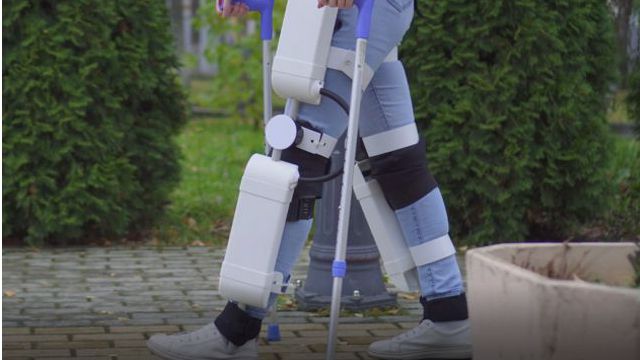Why study Biomechanical Engineering?
Helping to shape future topics in modern technology and medical development
The focus of the study program is the development of professional and methodological expertise for the holistic consideration of biomedical-technical relations and principles with a focus on medical assistance systems as well as medical devices.
The focus is on combining knowledge from the fields of mechanical engineering, medicine, biology and kinesiology. The transfer of principles and fundamentals of engineering to biological systems is used to carry out the development of mechanically dominated medical devices holistically and adapted to current challenges.
Contents of the study include:
- engineering modules such as additive manufacturing, materials in medical technology, sensor technology
- natural science modules such as biochemistry or tissue engineering
- medical modules such as clinical biomechanics, orthopedic technology or immunology
- other modules, such as basics of medical device law or analysis of complex motion sequences.
This interdisciplinary orientation enables the complex and multifaceted requirements for medical devices and their development, testing and manufacturing to be met.
Possible medical technology applications are made clear by the two possible specialization directions:
- Endoprosthetics primarily describes applications in the human body, such as artificial shoulder, knee or hip joints.
- Exoprosthetics deals with applications on the human body, which include, for example, exoskeletons or orthoses.
Excellent career prospects
Growing demand for medical devices due to increased health awareness and advances in medical technology
Against the backdrop of demographic change with new altered requirements such as autonomy and mobility in old age and regenerative medicine, the demand for innovative ideas and their implementation in high-performance, reliable, practical and sustainable medical products and services is growing. Increased health awareness in both the private and professional spheres, as well as rapid advances in medical technology, are reinforcing this demand.
The occupational field is very broad: Research, pre-development, development, design, construction, testing, project planning, commissioning, service and monitoring of medical assistance systems as well as medical devices.
Interesting activities can be found in a wide range of companies and institutions:
- in the free economy in the field of medical technology
- in hospitals and medical institutions
- in scientific research and development at universities and research institutes
- at service providers such as testing institutes, certification and approval authorities.



